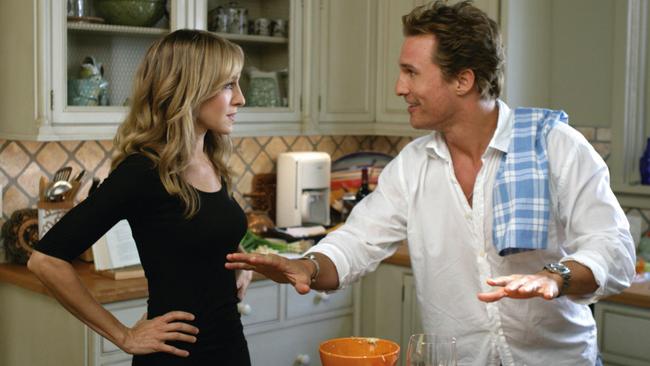What to say to your adult child who still lives with you
It’s a common scenario: parents welcoming — or tolerating — their adult children living with them. But in order to maintain harmony, you must set firm ground rules, writes parenting expert Dr Judith Locke.
Rendezview
Don't miss out on the headlines from Rendezview. Followed categories will be added to My News.
In 2018, an American man, 30, sued his parents for insisting he move out of home.
Even though he said he never spoke to them, he claimed that they should allow him to continue to live in his bedroom.
It didn’t work and he did move out, but only after many attempts and a court case.
This week’s column is about ensuring that you never get to that stage with your adult child.
It follows last week’s column about the problems of adult offspring continuing to live like children in their parents’ home to the detriment of everyone in the house.
As their parent, you need to do everything you can to change things and either make them behave in a more considerate manner in your home, or move out and become an adult. So how do you have that conversation?
Tell them the problem.
You want a good relationship with them and a harmonious home, but increasingly you are finding that you are starting to resent them for the extra work you do for them, or the fact that the house is much more tumultuous than you would like it.
Therefore, the arrangement is not working for you.
MORE FROM DR LOCKE: How to get your kids doing their homework at all ages
What must happen
Tell them that you are happy for them to continue to live at home, but, for that to occur, things will need to change. They must do equal an share of household tasks and take on more regular responsibilities, such as cook a few family meals every week and take on regular chores. They need to be more considerate, such as keeping common areas clean, cleaning up after their friends have been over and not having their partner stay any more than two nights a week (if at all).
If they are working a full-time job, you might insist they start contributing through regular board payments to help with electricity.
MORE FROM DR LOCKE: Kids need to fail. And parents need to let them
They should be generally pleasant.
While everyone has the right to be in a bad mood, they don’t have the right to take it out on others and you need them to comply with this expectation.
Discuss their choice
Tell them that this gives them a choice to either follow the rules as you are now setting out or moving out.
You are not wanting it to go either way, it is their choice. But make it clear that this is the way it must be for them to keep living with you or they must make alternative arrangements.

Give them a deadline
Give them time to think about what they want to do. You might say a deadline for when you need to see certain behaviour changes, such as them contributing more. Discuss the timing of how long it might take them to find a place
Tell them you feel they are more than capable to do this themselves, but if they need your advice they can ask.
Many parents tell me that, while getting their child to move out started with big arguments, it became the making of their child, who gained well-earned pride from taking on adult responsibilities.
Many have also seen a huge turnaround in their child if they have elected to stay at home and become more contributing and considerate.
Either way, parent-child relationships will be improved.
While it should be an individual’s responsibility to be pleasant and helpful, it is also the responsibility of their loved ones not to let them behave like a brat, to give them the best chance of realising their true potential.
Don’t be afraid to help your child get there with your tough love.

TAKEAWAY FOR PARENTS
Start preparing your teen for their adult years by having conversations about these topics.
● Your rules about living at home after they finish school; they need to be full-time earning or learning, or have part-time combinations of both.
● What the living arrangements will be when they are an adult and what they will be allowed to do (i.e. alcohol, parties or gatherings, partners staying over).
● What you will pay for and what you won’t and the likelihood they will need a part-time job.
● The need for them to pay board if they work full time.
● When they see themselves moving out and what skills and finances they will need to do that.
Have them actively work toward these goals.
Dr Locke did her PhD at Queensland University of Technology on the changes in parenting and is now a visiting Fellow at QUT doing ongoing research on modern parenting, child and parent wellbeing and school environments.
Send your parenting questions to: mail@confidentandcapable.com


